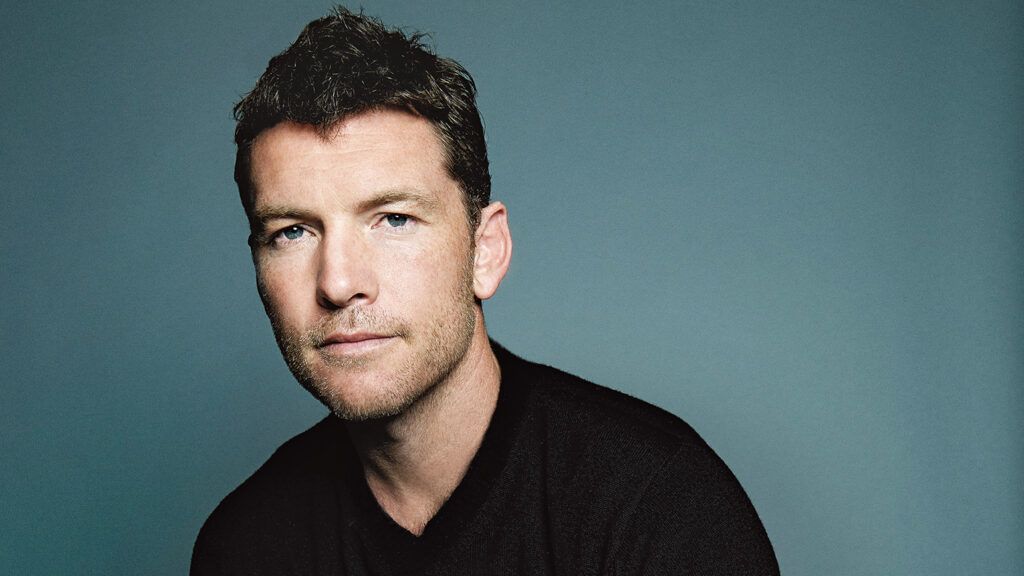Sometimes as an actor you feel an instinctual connection to a role, but it’s only in hindsight, after the filming is over, that you can see why you wanted to do that movie. Why you needed to play that particular role as part of your own spiritual journey.
That’s what happened to me with Mack, the lead character in The Shack. When I first read the script, based on the novel by William Paul Young, I knew I wanted to be in it. Only looking back now do I fully understand why.
The book, as you probably know, was a huge best seller. Young originally wrote it as a Christmas present for his kids. He never expected that its message of hope in the midst of despair would reach millions.
BROWSE OUR SELECTION OF BOOKS ON CHRISTIAN LIVING
The plot centers around Mack, a dad with a complicated past. As the film begins, he is in deep mourning for his six-year-old daughter, Missy, who’d been abducted on a camping trip four years earlier and brutally murdered. Mack is tortured by guilt over the crime, blaming himself for not protecting his little girl, and he is unspeakably angry at God. How could a loving Father let such a thing happen?
Then Mack gets a mysterious letter with no stamp, postmark or return address. There aren’t even any footprints in the snow around the mailbox to indicate who delivered it. “It’s been a while,” the letter says. “I’ve missed you. I’ll be at the shack next weekend if you want to get together.—Papa.”
There it is, the first mention of the abandoned shack in the mountains where Missy had been taken, where her blood had seeped into the floorboards, her body never found. It’s a metaphor for all the pain, hurt, anger and resentment we carry around with us.
Mack accepts the invitation and goes to the shack, half-hoping to take revenge on his daughter’s unknown killer. Instead he finds a place outside time, where he meets God in the form of three persons: Jesus, the Holy Spirit and the Father, or Papa.
You might wonder what I knew about God. I grew up in Australia and didn’t come from a religious background. At 19, I was a bit lost, a rebellious young man, railing against the world as you often do at that age. One day I was hanging out with my friend John, and very casually he gave me a Bible. “Hey, man,” he said, “read this. Take some time with it. It might have some answers for you.” He suggested that I look at the story of King David.
Yeah, whatever, I thought.
But something made me open up that Bible and read about David—a guy who made huge mistakes and yet was someone God still forgave and loved.
That message was powerful and made me want to explore the book further. I have kept reading that Bible over these last 20 years. The stories in it are such a gift. I can drop into it anytime and get something from it. I’m still on my faith journey, discovering what my relationship is with God. But I can say for sure that my faith has helped me navigate the potholes of life.
There I was, almost 40 years old, being given the opportunity to play a character whose relationship with God was at the center of a movie. Now I see that the timing had to be more than coincidence. My wife, Lara, and I had just had our first child, and I was thinking about what kind of father I would be.
I wanted to be a positive life force for my son. I didn’t want to carry resentments or guilt or anger from the past into my new family. I wanted to be free of all that baggage. In short, I wanted to lose my own shack, not that I understood that at the time.
In making a movie, if you’re fortunate, there are moments when everything comes together and then some—moments that go beyond the limits of ordinary experience. When crew members were scouting locations in British Columbia for The Shack, they were looking for the right spot for the garden that Sarayu, the character who plays the Holy Spirit, nurtures.
The crew was standing in a circle on a dirt pad, thinking about how they might turn it into a garden of wild beauty. Out of the blue an abundance of butterflies descended and pollen swirled around them, as if to say, Yes, this is the place. You’ve got it.
That same magic appeared in other scenes we filmed. For instance, we shot a sequence on the lake near the shack, where I walk with Jesus on the water, practically skipping over it. Aviv Alush, the Israeli actor playing Jesus, started crying at the top of the scene and couldn’t stop. He was laughing through his tears, transported by joy. He’d been taken to another place. It wasn’t something you could force. It just happened.
Toward the end of the movie, we were doing the poignant scene of Missy’s burial (her body had finally been found). All these butterflies were being released, the butterflies mirroring Mack’s spiritual transformation. I love butterflies anyway, the way they’re reborn from within.
Just then, as though someone had choreographed it, a butterfly actually landed on my face and stayed there, fluttering its wings. You can see it in the film. It’s not some trick of CGI, computer-generated imagery. It was a moment of pure joy and wonder.
These happy accidents come from somewhere beyond us, I believe, and I hope they highlight the spirituality and connection our movie is aiming for. I’m also grateful for what was happening within me.
The theme of forgiveness in The Shack was something I was searching for without even knowing it. Mack was not responsible for his daughter’s brutal death, but he still blames himself for it. He has to forgive himself in order to move on. Otherwise he’d be trapped forever in his guilt and anger, unable to fully live again, to love his wife and his two other children.
In playing Mack, I became aware of a lot of pain and remorse that I needed to release too. How could I do it? What were the tools I needed, not so much as an actor but as a husband and a father?
In one scene Mack is holding a ladybug, reminding him of the ladybug pin the killer had left behind. Mack knows he can crush the ladybug, like he wants to crush the killer. He decides in that moment to do what he thought was impossible: He will forgive his daughter’s murderer. He lets the ladybug go, saying, “I forgive you.” Then he tells Papa, “But I don’t feel any different.” Papa replies, “Yeah, but if you say it every day, it’s going to get easier and easier.”
What a beautiful message. We tend to want God to give us all the answers now. We want to solve all the world’s problems or our own personal problems now. But working through problems is a gradual process, something you do piece by piece, day by day. That’s helped me with forgiveness, doing it one step, one word, at a time.
My wife and I now have two sons, a two-year-old and a newborn. Most of my prayers aren’t for myself at all but for my children. When they’re sick or upset and I can’t calm them, I find myself turning to God. He doesn’t necessarily tell me what to do, but I feel him listening and that helps me listen to and comfort my sons.
Soon I’ll read them stories out of the Bible, stories that have helped me become a better person. I don’t want my kids to just reach for me; I want them to reach out to God too.
My favorite scene in the movie is at the end. Mack is in the hospital and his older daughter, who has been struggling with guilt and anger herself, sits by his bed and talks to him. “I’m only just beginning this journey,” he says to her, this journey of faith and forgiveness. “I can’t do it alone. I hope you can do it with me.”
None of us makes our journey alone. Not when we’re open to other people. Not when we’ve met Papa and Jesus and the Holy Spirit.
Did you enjoy this story? Subscribe to Guideposts magazine.




